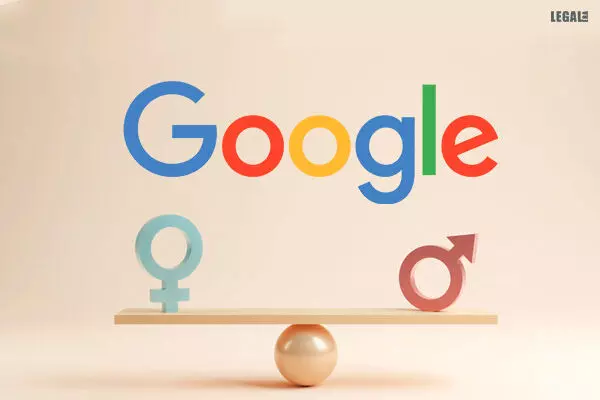- Home
- News
- Articles+
- Aerospace
- Agriculture
- Alternate Dispute Resolution
- Banking and Finance
- Bankruptcy
- Book Review
- Bribery & Corruption
- Commercial Litigation
- Competition Law
- Conference Reports
- Consumer Products
- Contract
- Corporate Governance
- Corporate Law
- Covid-19
- Cryptocurrency
- Cybersecurity
- Data Protection
- Defence
- Digital Economy
- E-commerce
- Employment Law
- Energy and Natural Resources
- Entertainment and Sports Law
- Environmental Law
- FDI
- Food and Beverage
- Health Care
- IBC Diaries
- Insurance Law
- Intellectual Property
- International Law
- Know the Law
- Labour Laws
- Litigation
- Litigation Funding
- Manufacturing
- Mergers & Acquisitions
- NFTs
- Privacy
- Private Equity
- Project Finance
- Real Estate
- Risk and Compliance
- Technology Media and Telecom
- Tributes
- Zoom In
- Take On Board
- In Focus
- Law & Policy and Regulation
- IP & Tech Era
- Viewpoint
- Arbitration & Mediation
- Tax
- Student Corner
- AI
- ESG
- Gaming
- Inclusion & Diversity
- Law Firms
- In-House
- Rankings
- E-Magazine
- Legal Era TV
- Events
- News
- Articles
- Aerospace
- Agriculture
- Alternate Dispute Resolution
- Banking and Finance
- Bankruptcy
- Book Review
- Bribery & Corruption
- Commercial Litigation
- Competition Law
- Conference Reports
- Consumer Products
- Contract
- Corporate Governance
- Corporate Law
- Covid-19
- Cryptocurrency
- Cybersecurity
- Data Protection
- Defence
- Digital Economy
- E-commerce
- Employment Law
- Energy and Natural Resources
- Entertainment and Sports Law
- Environmental Law
- FDI
- Food and Beverage
- Health Care
- IBC Diaries
- Insurance Law
- Intellectual Property
- International Law
- Know the Law
- Labour Laws
- Litigation
- Litigation Funding
- Manufacturing
- Mergers & Acquisitions
- NFTs
- Privacy
- Private Equity
- Project Finance
- Real Estate
- Risk and Compliance
- Technology Media and Telecom
- Tributes
- Zoom In
- Take On Board
- In Focus
- Law & Policy and Regulation
- IP & Tech Era
- Viewpoint
- Arbitration & Mediation
- Tax
- Student Corner
- AI
- ESG
- Gaming
- Inclusion & Diversity
- Law Firms
- In-House
- Rankings
- E-Magazine
- Legal Era TV
- Events
Google to pay $118 million in a gender discrimination lawsuit

Google to pay $118 million in a gender discrimination lawsuit
The terms will now be approved by a judge in a hearing
A settlement of USD 118 million was reached in a gender discrimination class-action lawsuit against Google. About 15,500 women employees claimed they were under-compensated and denied advancement on the basis of gender.
The case, Ellis v. Google LLC, was initiated in 2017. It accounted for Google's conduct since September 2013 across 236 'covered positions', or job titles. In addition to monetary damages, the settlement provides for a review of Google's hiring practices by a third-party expert. It also requires reviewing their pay-equity standards by a third-party labor economist. For the next three years, the reviews would be supervised by an independent settlement monitor.
Holly Pease, one of the plaintiffs, stated, "As a woman who has spent her entire career in the tech industry, I am optimistic that the actions Google has agreed to take as part of this settlement will ensure more equity for women. It now has an opportunity to lead the charge to ensure inclusion and equity for women in tech."
The co-counsel of the plaintiff, Jim Finberg stated, "We are delighted that in this Settlement Agreement and Order Google is also affirming its commitment to be a leader in ensuring pay equity and equal employment opportunity for all of its employees."
Earlier, a California judge had approved the USD 18 million settlement of the video game company Activision Blizzard with the US Equal Employment Opportunity Commission, settling a federal lawsuit on sexual harassment and gender-based discrimination against the entertainment giant.
Last year, California's Department of Fair Employment Housing had announced a USD 100 million settlement to resolve allegations of systemic gender discrimination and harassment by Riot Games, a popular game developer and publisher in the US market.
Similarly, Pinterest had settled a shareholder case alleging that the top executives had enabled racial and gender discrimination within the company. Google had also settled a similar case for USD 3.8 million against the US Department of Labour, which accused the tech giant of "systemic compensation and hiring discrimination."




